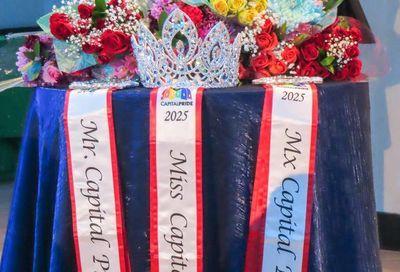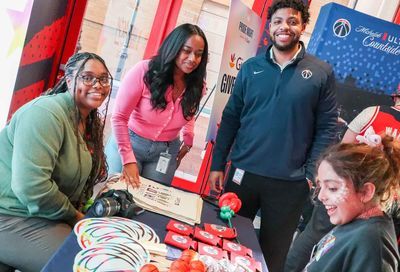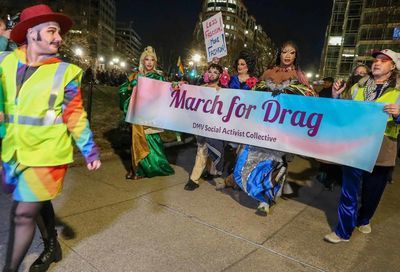Better Late
'Not Too Late' showcases a slightly grittier Norah Jones, while 'Lush Life' rediscovers a gay jazz great

Norah Jones scored quite the sleeper success with her debut album five years ago. With no expectations, Come Away With Me was quietly released but quickly became one of the best-selling debuts of all time. Millions were lured into her sweet and lovely lair.
But many millions more were merely lulled to sleep. Both her debut and her successful 2004 follow-up Feels Like Home trafficked in quiet, gently flowing music that calmed and soothed and never demanded your attention. Her lightly jazz-seasoned pop with blues undertones never strayed from the easy-listening category, and her lyrics about love and longing offered only occasional glimpses of wit or wonder. She may have come across as winsome and charming — and really, what’s not to like about Norah Jones? — but slightly melancholy, thoroughly mellow music doesn’t inspire much passion. Few people would ever claim to be Norah Jones’s No. 1 fan.
Advertisement
|
That fate won’t change much with Jones’s just-released third album, Not Too Late. She’ll still lure and lull millions of people. Perhaps now, however, she’ll actually admire and detract in equal proportion. Because while Not Too Late isn’t perfect or even brilliant, it is surprisingly strong. It’s only half as sweet and soothing as her past two sets. Best yet, it’s not nearly as sleepy — it’s more groggy, as if Jones just woke up from a sweet dream that lasted a bit too long. Jones has said she wanted to show more of her personality on this record, which for the first time finds her writing or co-writing every track. And she succeeds, with assistance from her love and songwriting partner, Lee Alexander, who replaces the late Arif Mardin as her producer.
Jones is now grittier, displaying a wider palate of pop-music styles. She’s tweaked her signature sound by adding a little rock guitar fire, a little more old-time country playfulness, and a lot more despairing blues heat. She found much inspiration in New Orleans — in the joy, but especially the pain, that the city knows all too well. The sincerely pained ”Broken,” about an injured man who still has a song in him even after all he’s endured, is clearly a requiem to a broken city, ”the sweetest thing I had ever seen.” Her album’s stunning artwork and gorgeous photography also seems pretty clearly inspired by that city’s festive, irrepressible spirit.
Jones is also now certainly wittier. Her lyrics reflect on some of the joy, but mostly the pain, that our society has faced in the past several years: not just the Gulf Coast hurricanes, but also the Iraq War, disgust with political leaders and depression over electoral defeats. ”I needed someone I could shake on election day,” she sings on her strongest song, the quiet-storm ”My Dear Country.” A letter from a hurt but still faithful patriot, this bluesy cabaret-colored number also lays out her m.o.: ”Who knows maybe it’s all a dream. Who knows if I’ll wake up and scream.”
Not Too Late introduces us to a wiser Norah Jones, now 27 years old. The album will undoubtedly be a commercial success. Mostly, though, Not Too Late holds out the promise that Jones’ future work will be even stronger. As she matures, Jones is becoming an adventurous and astute singer-songwriter, not just a sweet and safe one. Better late than never.
Advertisement
|
Next Tuesday, February 6, local PBS affiliate WHUT (Channel 32) will debut a national documentary that should help wake us up to the late Billy Strayhorn. Billy Strayhorn: Lush Life will introduce viewers to the composer, arranger and pianist who was Washington-native Duke Ellington’s right hand man for decades, responsible for many of the Duke’s most famous compositions, including ”Take the A Train.” But Strayhorn was often overshadowed by the jazz giant.
In his shadow, Strayhorn was also notably an openly gay man, at least as open as one could expect to be half a century ago. Blue Note Records has released a companion soundtrack to Billy Strayhorn: Lush Life. The album works as more than just an overdue celebration of an underappreciated gay musician — it’s a celebration featuring some of today’s leading jazz stars. It is through their work, in fact, that the album especially shines.
The soundtrack introduces you to not one, but two, jazz greats: one dead, one alive. Strayhorn died of cancer 40 years ago, so this is an opportune time to commemorate this gay great. And who better to help realize the opportunity than vocalist Dianne Reeves? Memorable from her turn as a jazz singer of Strayhorn’s era in George Clooney’s Good Night and Good Luck, Reeves adds her slightly smoky, voluptuous voice to interpret six songs here in equally memorable fashion. ”Strayhorn’s songs have a kind of sadness. They’re about not being able to find the love you desire,” Reeves says in press notes for the new album.
All throughout, and especially with the album’s closing track, ”So This Is Love,” Reeves leaves you pining for more.
Support Metro Weekly’s Journalism
These are challenging times for news organizations. And yet it’s crucial we stay active and provide vital resources and information to both our local readers and the world. So won’t you please take a moment and consider supporting Metro Weekly with a membership? For as little as $5 a month, you can help ensure Metro Weekly magazine and MetroWeekly.com remain free, viable resources as we provide the best, most diverse, culturally-resonant LGBTQ coverage in both the D.C. region and around the world. Memberships come with exclusive perks and discounts, your own personal digital delivery of each week’s magazine (and an archive), access to our Member's Lounge when it launches this fall, and exclusive members-only items like Metro Weekly Membership Mugs and Tote Bags! Check out all our membership levels here and please join us today!























